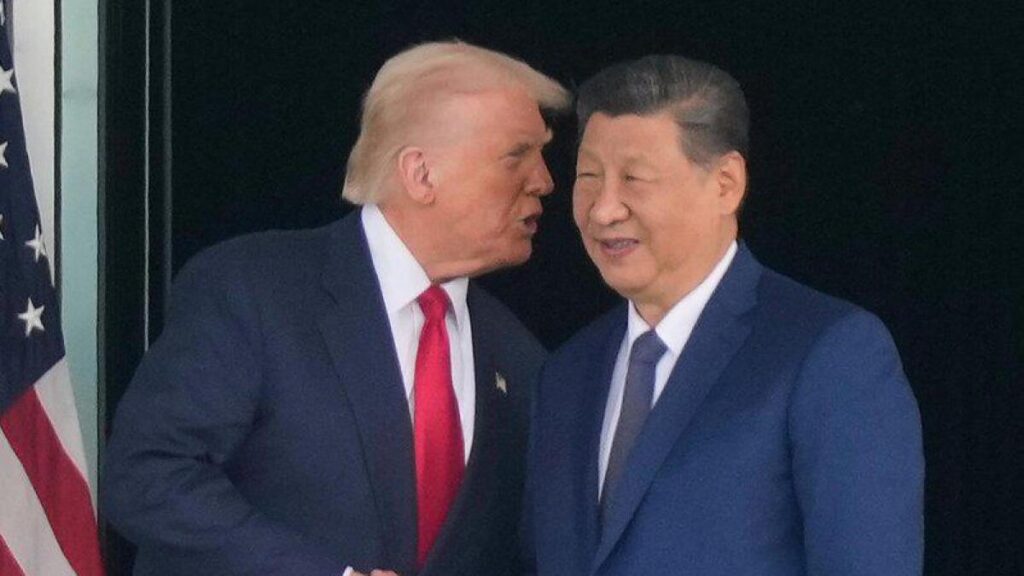
Donald Trump announced a significant reduction in tariffs on Chinese imports following a productive meeting with Xi Jinping on the sidelines of the Asia-Pacific Economic Cooperation summit in Busan. The tariffs will decrease from 57 percent to 47 percent, with the rate on fentanyl precursor drugs halved to 10 percent. Trump expressed his satisfaction with the talks, rating them a “12 out of 10.”
During the meeting, Trump stated that Xi would work “very hard to stop the flow” of fentanyl, a synthetic opioid contributing to a rising number of overdose deaths in the United States. The reduction in tariffs was attributed to what Trump described as China’s commitment to taking “strong action” against fentanyl trafficking.
In return, China agreed to pause export controls on rare earth elements, which are crucial for various industries, including automotive and aerospace. The Chinese commerce ministry confirmed that this pause would last for one year. Both nations also reached a consensus on cooperation regarding fentanyl and expanding agricultural trade.
Global stock markets reacted cautiously to the news, with major Asian indices and European futures fluctuating between gains and losses. Among the United States’ major trading partners, only Brazil and India remain subject to higher tariffs. In the lead-up to this meeting, global stock markets had experienced a surge, fueled by optimism surrounding potential breakthroughs in the ongoing trade conflict between the world’s two largest economies.
The cordial discussions lasted over 90 minutes and took place at a South Korean air base. Trump highlighted the potential for future agreements, noting that U.S. negotiators had recently established a framework with China to prevent the imposition of full tariffs on U.S. goods. Xi remarked that the occasional frictions between the superpowers are normal, emphasizing that “China’s development and rejuvenation are not incompatible” with Trump’s agenda of making America great again.
In addition to the tariff reductions, China sought easing on export controls related to sensitive U.S. technology, as well as a rollback of new port fees on Chinese vessels aimed at curbing China’s dominance in shipping and logistics. Trump did not comment on U.S. concessions regarding these issues but indicated that China would begin purchasing “tremendous amounts” of U.S. soybeans and other agricultural products immediately. Reports from Reuters indicated that China had already started buying U.S. soybeans, marking the first cargoes in several months.
Looking ahead, the White House signaled hopes for additional meetings between the two leaders in the coming year. Trump announced plans to visit China in April 2024, before Xi makes a reciprocal visit to the United States. Despite prior suggestions, Trump stated he did not discuss Nvidia’s advanced Blackwell AI chip with Xi during the meeting, although reports earlier in August noted Nvidia’s efforts to develop a downgraded version of the chip for the Chinese market.
This meeting represents a pivotal moment in U.S.-China relations, with both sides expressing a desire to navigate complex trade dynamics and foster cooperation in key areas. The outcomes could shape the economic landscape for both nations in the years to come.






